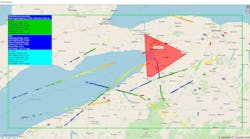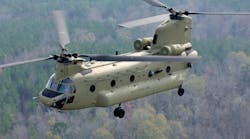WARRENDALE, Pa., 31 Dec. 2009. - JEDEC Solid State Technology Association, a standards development organization for the microelectronics industry, and SAE International, have entered into a Memorandum of Understanding to collaborate on the development of standards for fiber optic system test and qualification methods for harsh environment applications. The work will be conducted under the auspices of the new JEDEC JC-13.6 Subcommittee for Fiber Optic Systems in Military and Space Applications.
The JC-13.6 Subcommittee's objective is to publish and maintain a comprehensive test and qualification standard for fiber optics in harsh environment applications; with emphasis on commercial avionics and military avionics in missile and space systems. JEDEC and SAE International invite companies and agencies interested in contributing to the development process to contact the JEDEC office at 703-907-7560 for more information.
David Zika, chair of SAE International's Avionic Systems Division, will serve as the vice chair of the new JEDEC Committee. "This is an important agreement because fiber optics is playing an increasingly larger part in commercial and military avionics. We are pleased to be part of this agreement and look forward to the important work that lies ahead."
"It's clear that the industry must raise the bar and establish comprehensive standards for fiber optics in harsh environments," says Chuck Tabbert, Chairman of JC-13.6. "With high speed point-to-point intra-platform communications networks becoming a choke point for next generation systems, the rapid qualification of fiber optic transceiver modules and the associated infrastructure is essential," he adds. "Fiber optic systems offer numerous benefits, including insensitivity to electronic interference, savings in weight and power, increased bandwidth and immunity to lightning."
"SAE International and JEDEC's agreement to collaborate is a response to the growing consensus regarding the need to improve industry standards available to the fiber optic community," says Edward M. Manns, manager of aerospace standards for SAE International. "SAE International is pleased that this effort enjoys the active support of fiber optic industry leaders, and we look forward to working with JEDEC to bring government agencies, users and vendors together to meet the needs of the industry."
David Zika, chair of SAE International's Avionic Systems Division, will serve as the vice chair of the new JEDEC Committee. "This is an important agreement because fiber optics is playing an increasingly larger part in commercial and military avionics. We are pleased to be part of this agreement and look forward to the important work that lies ahead."
"JEDEC is delighted to enter into this collaboration with SAE International, and we encourage wide participation in the work being undertaken by JC-13.6," says John Kelly, JEDEC president. "Such participation helps to ensure broad consensus and significantly enhances the quality of the resulting standards."
For more information on JEDEC, visit www.jedec.org. For more information on SAE International, visit www.sae.org.


